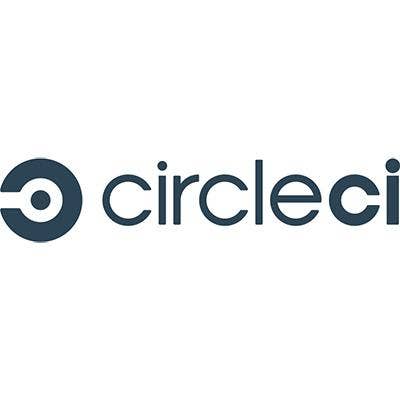The 10 Coolest Cloud Development Startups Of 2016 (So Far)

Getting It Done
Cloud computing is fueling a wave of new startups and technologies aimed at speeding development and management of next-generation apps. If there's a unifying theme to what these vendors are building, it's the belief that apps need to be faster to develop, easier to manage, and more flexible when it comes to the infrastructure they run on.
The cloud, in its early stages, helped fuel the need for speedy software development and updates. Automation technology has also emerged to help keep apps up and running in the cloud and in enterprise data centers. More recently, Linux container technology is now providing an alternative to server virtualization for certain scenarios.
Here, CRN looks at 10 startups – some well-established, others less so – that are having a profound impact on the way apps are built, managed, patched, secured, and updated in cloud environments.
(For more on the "coolest" of 2016, check out "CRN's Tech Midyear In Review.")

CircleCI
CEO: Jim Rose
CircleCI sells a software platform that web and mobile developers can use to speed the process of building, testing and deploying code by automating the whole time-consuming process. It sells a free SaaS version of its platform as well as a paid version that lets enterprises run it behind their firewall.
The San Francisco-based startup already has an impressive stable of customers, including Facebook, Kickstarter, Zenefits, GoPro and Spotify. CircleCI has integrations with GitHub, Bitbucket, Docker, Heroku and Sauce Labs.
CircleCI has raised $28 million since its founding in 2011, the latest an $18 million Series B round in May. Investors include Scale Venture Partners, DFJ, Baseline Ventures, and Harrison Metal Capital.

Anchore
CEO: Saïd Ziouani (pictured)
Anchore, a container startup led by the founder of IT automation startup Ansible -- now part of Red Hat -- is focusing on the challenges of managing and securing containers in enterprise environments.
CEO Saïd Ziouani previously spent more than a decade at Red Hat as vice president of sales and business development, helping establish the company as the industry's first open source vendor to hit $1 billion in annual sales.
Anchore's CTO, Daniel Nurmi, was a co-founder and CTO at Eucalyptus Systems, which was acquired by Hewlett-Packard in 2014.
Anchore launched the first version of its open source technology in July. It consists of a ’framework of modules that work in concert to give users the ability to better understand container images, and to apply policies at various stages in a container image's lifecycle,’ Nurmi said in a blog post.

GitHub
CEO: Chris Wanstrath (pictured)
GitHub, a startup whose code repository software has become wildly popular with developers of all stripes, recently started targeting enterprises with a product that runs behind the firewall. To get there, GitHub is enlisting the channel skills of partners that are experienced in selling into this segment.
GitHub doesn't offer professional services, and partners can make money by helping its customers migrate code from other repositories and audit the code using security tools, Padma Rao, GitHub's director of channels, told CRN recently. Partners also get discounted pricing on licenses, deal registration and market development funds.
GitHub has raised $350 million in two funding rounds from Andreessen Horowitz and Sequoia Capital since its founding in 2008. As more enterprises embrace the DevOps trend, and build in-house development teams, GitHub's services – and partners – are poised to see greater attention in the marketplace.

Puppet Labs
CEO: Luke Kanies (pictured)
Puppet Labs is a pioneer in the market for configuration management technology, and its IT automation technology enables organizations to speed tasks associated with managing apps and operating systems in data center and cloud environments.
Puppet first introduced its open-source Puppet Software in 2005 and since then has formed industry partnerships with a wide range of enterprise and cloud vendors. The Portland, Ore.-based startup has raised more than $85 million in funding since then, and investors include Cisco Systems, VMware and Google Ventures.
Puppet is a key player in the emerging field of DevOps, which describes processes for collaboration between software developers and IT operations teams that aim to speed cloud software development and deployment. As DevOps continues to catch on in the enterprise, Puppet is poised to attract attention from the growing number of solution providers building software development teams.

Chef Software
CEO: Barry Crist (pictured)
Chef Software, which changed its name from Opscode in 2013, is another IT configuration management startup that's commercializing open source technology in the DevOps space. Seattle-based Chef has raised $105 million in five funding rounds since its founding in 2008, with Draper Fisher Jurvetson, Ignition Partners, Citi Ventures and Battery Ventures all taking part.
In June, Chef unveiled a new product called Habitat that's designed to simplify the application creation process.
Chef has a consulting practice that helps large enterprises deploy Chef as part of their overall DevOps methodologies, but also works with channel partners to go after these opportunities. The startup partnered with Amazon, Facebook and Google early on and has since built relationships with a broad range of other cloud and enterprise vendors.

SaltStack
CEO: Marc Chenn (pictured)
SaltStack is developing a systems management platform that's based on the Salt open-source project. It's designed for data center automation, cloud infrastructure development and orchestration, server provisioning and app configuration management.
SaltStack pitches its platform as a one-stop shop for tasks that typically require tools from multiple vendors. The Lehi, Utah-based startup claims some of the world's largest companies are using its technology for big data, software-defined networking, high-performance computing and Internet of Things projects.
SaltStack has raised a single $685,000 round of seed funding since its founding in 2011.

Shippable
CEO: Avi Cavale (pictured)
Shippable, a Seattle-based startup founded in 2013, sells a continuous integration platform that's designed for developing ’cloud native’ apps that take advantage of containers and microservices. There's also lots of automation built in to handle testing of code during the development process. And Shippable runs on both private and public cloud infrastructures.
Shippable CEO Avi Cavale co-founded the company along with VP of Product Management Manisha Sahasrabudhe. Both spent several years at Microsoft prior to launching the startup. Shippable has raised $10.5 million in three rounds since its founding.
Shippable also has big-name strategic advisors, including Joe Beda, co-founder of Google's Kubernetes container orchestration technology and Google Compute Engine; and Charles Fitzgerald, a longtime development executive who spent 19 years at Microsoft.

Diamanti
CEO: Jeff Chou (pictured)
Diamanti, a startup founded by former Cisco Systems engineers, is developing a converged infrastructure appliance that aims to solve challenges associated with deploying containers in production environments. This is seen as a roadblock to adoption of container technology in enterprises.
Unlike enterprise vendors that promote the running of containers inside virtual machines, Diamanti believes containers are best when deployed on bare metal. Customers choose which orchestration technology and Linux OS they want to use, and Diamanti claims it can get the appliance up and running in 15 minutes, getting immediate gains in hardware utilization.
Diamanti co-founders Jeff Chou and Amitava Guha spent several years at Cisco Systems before founding the San Jose, Calif.-based startup. Diamanti raised $12.5 million in a Series A funding round in April from investors Goldman Sachs and GSR Ventures.
CoreOS
CEO: Alex Polvi (pictured)
CoreOS, based in San Francisco, is developing its own container technology called rkt (pronounced 'Rocket'), which competes with Docker's container format. The startup also develops a lightweight Linux distribution that aims to let organizations run a Google-like infrastructure in their enterprise data centers.
CoreOS Linux became available in China for the first time in early July, after Microsoft Azure, operated by local cloud provider 21Vianet, began offering it to customers.
In addition to releasing several of its technologies as open source projects, CoreOS also sells Tectonic, a commercial distribution of the combined Kubernetes (a container management platform developed by Google) and CoreOS stack.
CoreOS is active on the partnership front too. The startup teamed with Mirantis last August on a project to develop an enterprise-grade integration of OpenStack with Kubernetes.
CoreOS has raised $48 million in five funding rounds since starting out in 2013, and investors include Andreessen Horowitz, Kleiner Perkins Caufield & Byers, Sequoia Capital, Google Ventures and Intel Capital.

Docker
CEO: Ben Golub (pictured)
Docker, a San Francisco-based startup that's building a business around Linux containers, is the best known vendor of the technology. It's also the most ambitious in terms of expanding the scope of containers and pushing the technology into new business areas.
Seeking to expand its market reach, Docker has partnered with Microsoft, Hewlett Packard Enterprise and many other vendors, many of which have built technology that allows their own technology to run better in containers. Docker is also leading the Open Container Project, an industry effort to develop a standard for container technology. The project is part of the Linux Foundation.
Docker, which already has a large ecosystem of partners, unveiled its own app store in June to let-third party vendors publish and distribute software via Docker images. Docker has raised $180 million in five funding rounds since starting out in 2010. If the IPO market wasn't such a scary place right now, the startup would likely have already gone public.